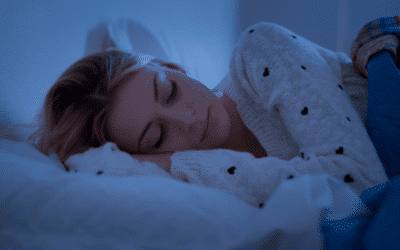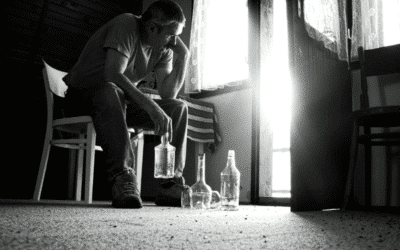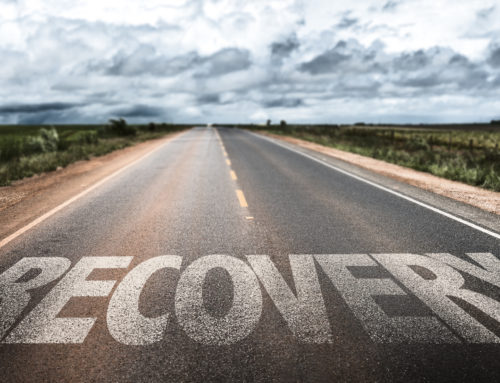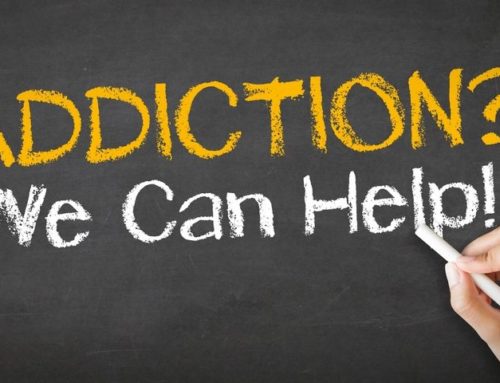Seasonal Affective Disorder & Addiction: What’s the connection?
Addiction can affect anyone and everyone, regardless of race, ethnicity, social and economic status or gender. But a mental illness that is not talked about enough is seasonal affective disorder, otherwise known as SAD. SAD and addiction often co-occur and can increase vulnerability in those who struggle with substance abuse.
What is SAD?
SAD is a form of depression where people are affected negatively by shorter, darker days due to seasonal changes. For example, summer days in Ohio are longer and warmer, while winter days end with the sun setting around 5 p.m. and the weather turning colder.
Who does SAD affect?
SAD can affect nearly anyone, but especially those who live in parts of the world where seasonal changes are more extreme. According to Help Guide, women and younger people are affected the most out of any other group of people.

What are the symptoms of SAD?
Fatigue and mild depression are very common in people experiencing SAD. Other symptoms can include:
- Sleeping too little or too much
- Change in appetite
- Weight gain
- Feeling hopeless or guilty
- Depression
- Stress and irritability
- Decreased interest in usual activities

SAD and Addiction:
In a study conducted back in the 90s, cocaine use and seasonal changes were correlated in a 25-year-old patient. The patient experienced heightened cravings for cocaine due to mood changes caused by his circadian rhythm. So, what is a circadian rhythm? A circadian rhythm is your body’s internal clock. Once established, your body will know when it’s time for bed versus time to wake up, and it will know when it’s time to eat. For instance, if you are someone who wakes up at 8 a.m. every day, eats lunch at noon and goes to sleep by 10 p.m., your body will get into the habit of adjusting to those patterns. Because of the established routine, extreme changes in weather or daylight will interrupt your body’s circadian rhythm and throw your body out of sorts thus causing addiction urges to spike.
When seasons change, people’s moods change as well, causing those with addiction issues to suffer greater consequences. Addicts may find they have less to do in the winter months, and begin using heavily indoors in the comfort of their own home, or even at a friend’s home. While this may not be the case for all substance users, it is highly likely the change in weather will affect someone’s drug or alcohol use.

Depression and addiction
Putting seasonal depression aside for a moment, it has been commonly known that a lot of addicts have a dual diagnosis; meaning that people who struggle with substance abuse also struggle with other mental illnesses such as anxiety or depression. According to Dual Diagnosis, substance abuse is common among people who are battling a depressive disorder.
With that being said, you can understand how SAD and substance abuse go hand-in-hand, given that SAD is a form of depression.
How can I avoid SAD?
It’s not easy to avoid SAD as it is your body’s go-to state when it is thrown off by seasonal changes. It’s also difficult for a doctor to diagnose patients with SAD, which is why it is important to ensure you are taking care of yourself year-round to help ease the symptoms of SAD. Read the below tips to help lessen the symptoms of SAD and improve self-care.

-
Get some exercise
Exercising has many benefits on your body and mind. If you have any built-up stress or tension, exercising can help release negative thoughts or feelings. If you do not have exercise equipment or belong to a gym, try taking a walk outside. The fresh air and natural light from the sun can also help to improve your mood, regardless of temperature.
-
Read a book
If you haven’t picked up reading, now is the time! SAD can make you feel disconnected from the world, and diving into a good book can help make you feel a part of something and pique your interest again. You may feel motivated by a story-line or connect with the characters in the book.

-
Journal
At times when it feels like no one is listening, journaling can be beneficial. Journaling helps you put your feelings together and write down whatever is bothering you. There are many forms of journaling such as guided journaling, bullet journaling, etc. Guided journals can be bought online through companies like Amazon and bullet journaling is as easy as writing short sentences of fragments in a notebook.
-
Pick up a hobby
If you’re someone who struggles with depression and addiction, finding a new hobby can be a little overwhelming, but it will benefit you in the long run. Colder weather can affect your usual outdoor activities or daily routine, so picking up a new hobby can help ease your boredom or anxiety levels. There are plenty of fun and engaging hobbies to dive into while staying indoors. If you’re crafty, try knitting or scrapbooking. If you’re not-so crafty, try learning a new language or cooking.
How New Day Recovery Can Help You
SAD and addiction do go hand-in-hand in those who struggle with substance abuse. New Day Recovery has centers in Columbiana, Mahoning and Trumbull counties, allowing for easy-access and plenty of available beds for clients looking to detox or get residential treatment. Addiction treatment can be scary, but New Day Recovery makes the process easier and guides you every step of the way as one of your trusted, local detox centers.
Addiction treatment is important to increase not only your quality of life, but your loved ones’ as well. Simply give us a call at 330-953-3300 to get your assessment started or visit our website for more information.









